Insight to the work of ESN ELTE - Interview with the president, Márk Csányi I./II.
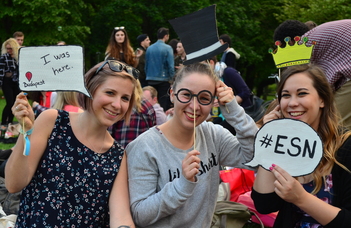
How was your summer? 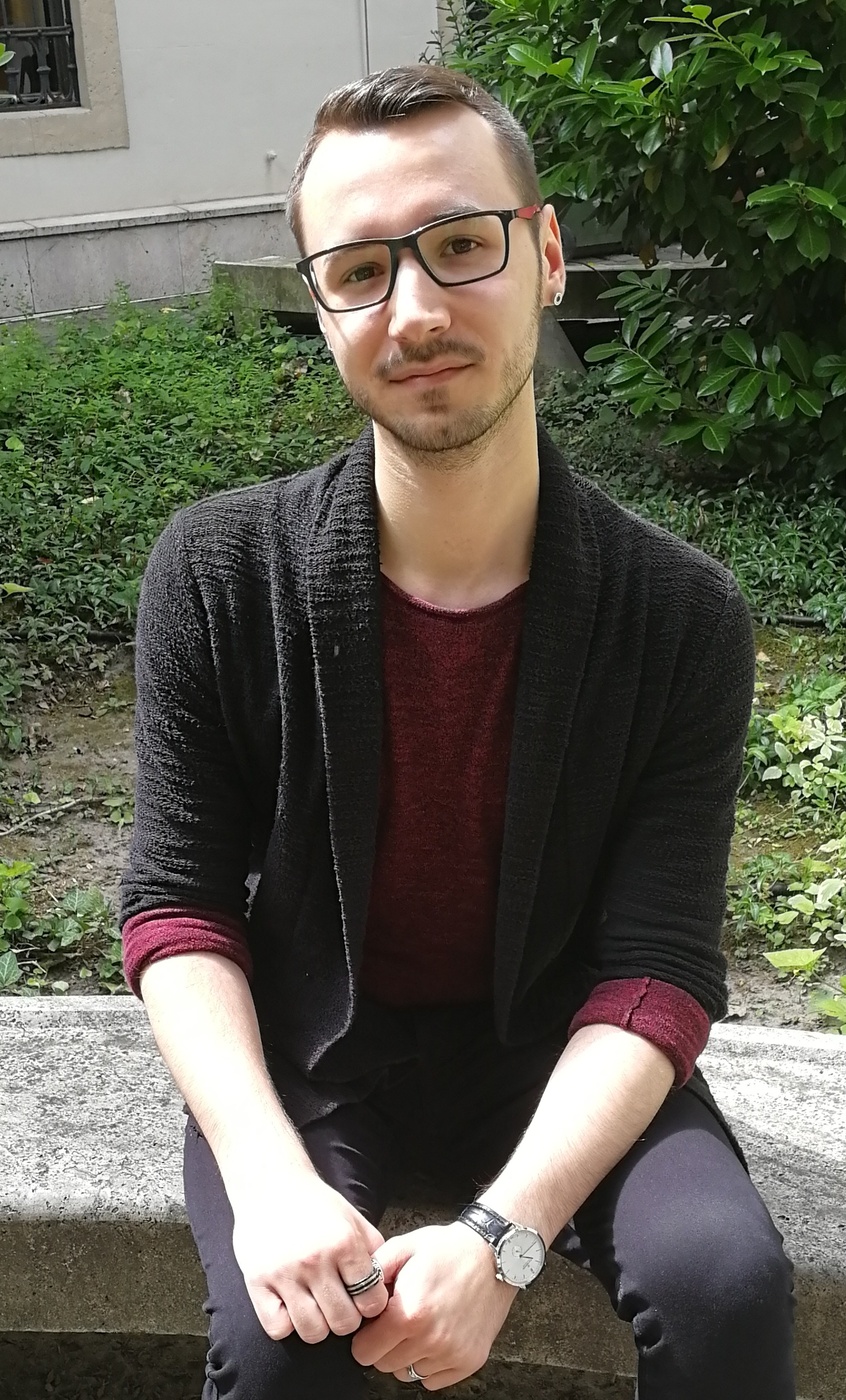
In ESN we can usually take some rest in the summer and we have time to consider all the feedback we receive from our mentees during the year and we overthink if we should change something. It is a bit more difficult to arrange our meetings as everyone has many programs, but we catch up and meet informally when we can.
How many members are there in the group?
There are 20-22 team members who are very active and have positions. We have 5 board members, 8 faculty coordinators (chief mentors) and 8 other coordinators. Beside us, there are three smaller working groups with 10-15 mentors in each. It depends, but together at the 8 Faculties we have approximately 200-250 mentors. There isn’t an exact number, because some of them usually are always abroad for example on Erasmus.
Is the membership permanent or the team is refreshed from time to time?
We do the recruitment at the beginning of each semester (in September and also in February) at each faculty separately. It lasts for 2-3 weeks. Students usually apply by completing the registration form or send us their CV and motivation letter. Atfer this they take part in ten-minute interview. The mentors can leave ESN ELTE after any semester and all are asked at the beginning of each semester if they would like to continue their activity in ESN ELTE. After we receive the list of international freshmen, the mentors can decide if they would like to mentor a new student or not in that semester.
Our recruitment campaign for this semester is ending soon. We are inviting any ELTE students who would like to be mentors at ESN ELTE to apply and meet us. We are always looking for enthusiastic mentors to join us!
How is the leadership built up at ESN ELTE?
There are five board members, and eight chief mentors and coordinators belonging to the eight faculties. The positions are assigned on an assembly, which is issued every spring semester. Sometimes it also happens that we have mid-time reelections, when someone has to leave their position earlier.
.jpg)
What are the biggest challenges?
For the mentors, mainly not to lose their motivation even if an international student does not need the help and doesn’t answer our first email.
Is it the international students who ask for a mentor?
Yes, after they are accepted for a degree program or and exchange program at ELTE, they can request a mentor and then we automatically receive their personal data and contact them. But some of them later realize that they don’t need a mentor so much, others only apply to meet new friends, but they don’t need help in the administrative tasks. So the biggest challenge is to keep up the mentors’ cheerful spirit and their motivation. In my case for example, though I could not connect so strongly with the students I was responsible for, but there were always ten others, whom I met weekly. They even visited me later when they came back to Budapest. So there is usually strong bonding among the mentors and mentees, even if not as planned in the first place. It is also a great challenge to always try our best and make the time spent here a good experience for them when it’s about program organization or problem-solving.
What are the main challenges for the coordinators?
Coordinators are not assigned to incoming students. Those who would like that, can be, but it is not mandatory. For them time management might be the most serious issue, to fit in everything, besides their tasks during studies at the university which are quite tough in certain degree programs. Many times keeping up our spirit is difficult as some of the events we organize don’t turn out the way we planned or only a few people show up. We always try to set the most ideal timing and start to promote the event in time, but simply there are some kinds of topics which will be not interesting enough for a a massive number of students. There was a party where we had a full-house, but at another one there were about 20 people. Sometimes this can be as unpredictable as the weather.
Which is the most popular ESN ELTE event?
One of these is the Welcome Weekend, which we started in September 2015. We always organize it in Eger after the Orientation Week. There are usually about hundred participants, ten-twenty of us from ESN ELTE as organizers and 80 international students. The program includes sightseeing, then wine-tasting in the evening and a party after that, and on the second day we go to a bath most of the times. Students always like this weekend a lot.
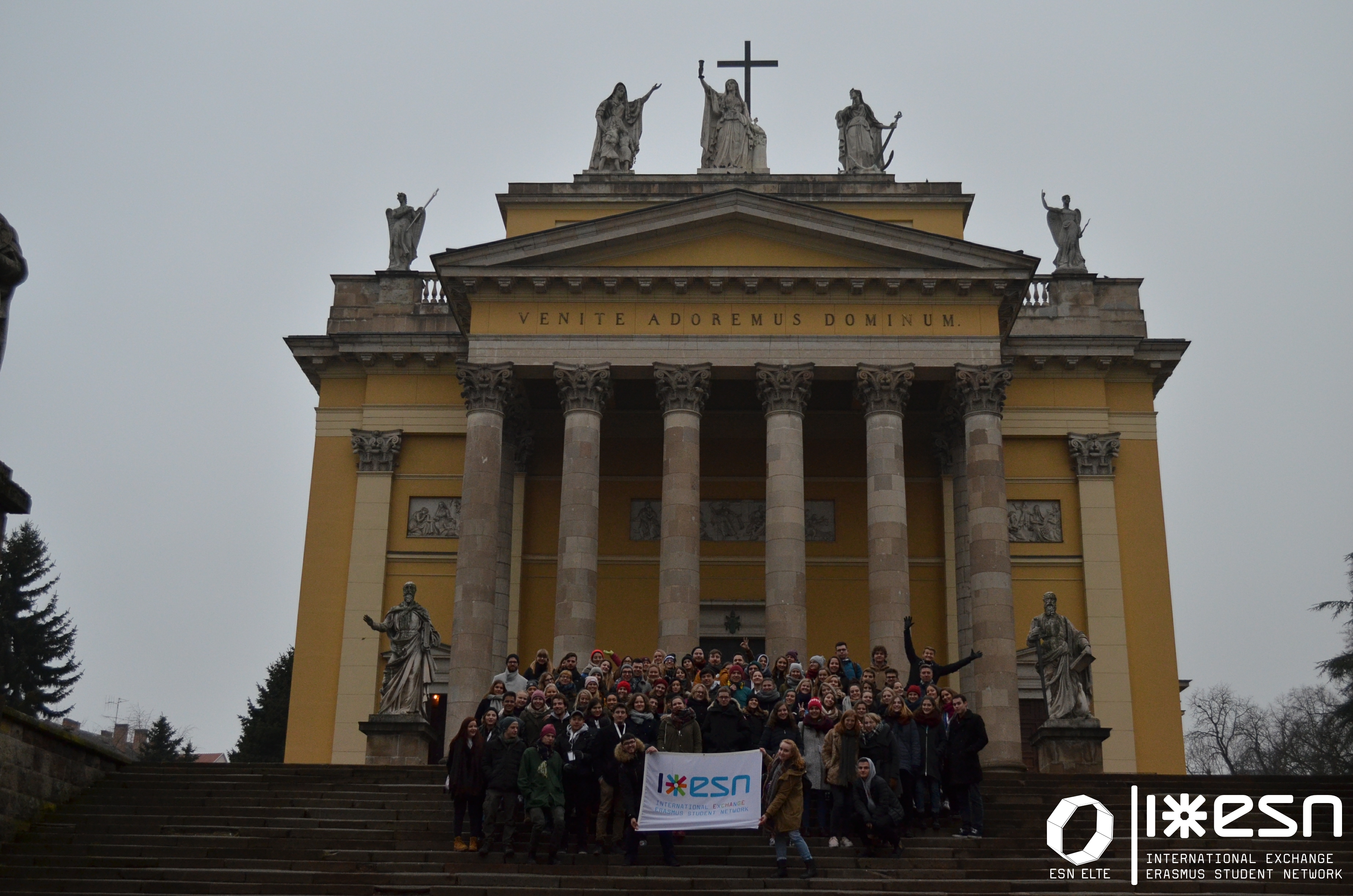
The other one is the International Dinner, a really old tradition, where students can show their own culture’s gastronomy individually or in a team. We organize this event on a university level, so all faculties participate. There usually are at least 100-150 people or even more, many of them also cook. Last autumn it was also really popular, many kinds of dishes were prepared. In the last few years we always combine this event with cultural programs. For example, we invite a couple from the Eötvös Folk Dance Group to show a short performance and teach a few moves to the international guests. There was a time when students from Pakistan sang traditional Pakistani songs, another time Russian and Azerbaijani students performed the folk songs of their culture. We always encourage students who take part in art projects at home to show something for us here.
The third event is the mentor camp, which is a team-building and training event for ESN ELTE mentors. These are organized twice a year, in the middle of October and March after the mentor recruitment, so the freshly selected mentors are also participating. We spend a weekend at Lake Velence, where the first day is for getting to know each other and the second day is about the team-building and educating ourselves.
Do you have an office where international students can find you?
We have an office in building B at the Faculty of Law in Kecskeméti street. The opening hours change every month, but the changes are always published on our webpage and Facebook page. We plan it based on our own schedules, someone is always signing up for the current month, so it is flexible for us as well. We can always be contacted by email and Facebook, too; our contact details are available on our webpage.
What are the most frequently occurring problems of the new students?
Accommodation is usually a common issue, but fortunately every year less as there are more and more housing websites, who provide quality checked accommodation. The questions in this topic are mainly referring to the student residences, such as when and how to apply, which residence is better, what are our recommendations. As they don’t know Budapest very well yet, they often ask, which location would be the most suitable for them. In case they cannot get a room in a student hostel, they also ask for help with finding an apartment. There usually are other administrative problems, too, such as SIM card to their phone, bank account issues, but we try to forward them information in advance through their mentors. In case it’s needed, we also accompany them to the immigration office. There are always some students who ask if it is possible to go there individually, but there always are organized group visits, where usually only a few people show up.
Do you keep in touch with those students who have already left ELTE?
Not with all students. Individually it often occurs that the mentors keep in touch with students; they visit each other in their home countries. But as there are a lot of new students every year, there is no capacity to keep in touch with all those students who have already left.
Does ESN give you instructions regarding your work?
The image of the network is centrally determined, so the logo, the colors, the outlook of the Facebook and webpage are given. There are 528 sections, so it is important that the image is unified and easily recognizable. Beside these there are international projects and programs, such as Social Erasmus, ExchangeAbility, Mov’in Europe or Responsible Party.
One of our aims is to organize programs for international students, through which they get to know the Hungarian society as well, mainly through the eyes of the Hungarian students.
SocialErasmus, for example, intends to promote volunteering for the local and international students, for example, on the fields of environment protection or anti-violence. In previous years, there were photo-campaigns organized against domestic violence or for equality. We also organize events in these topics, such as in Erasmus in Schools program we visit schools together with international students where disadvantaged pupils study. On these occasions students give an English presentation about their country and culture in an English class.
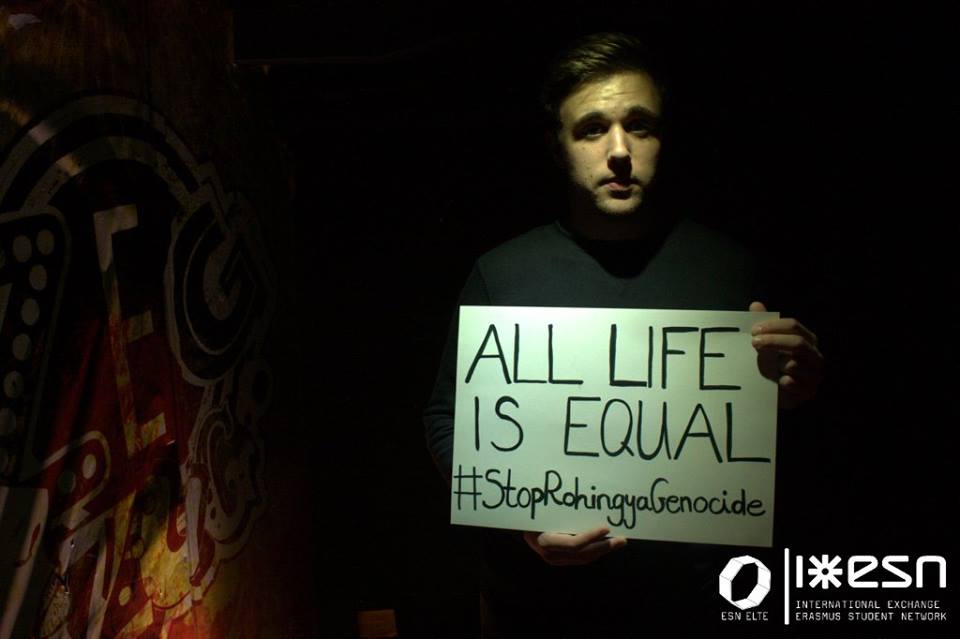
We also organize charity events, such as charity run and football cup, or we bake cakes and we donate the income to a foundation or an institution in need. One of the most popular programs is when we visit dog shelters and walk the dogs living there.
ExchangeAbility program raises awareness for the presence of people in the society who live with some kind of special needs and also tries to make ELTE and ESN more accessible for them. As a part of this program there was a webpage set up on international level where anyone can check how accessible a university is. We checked and measured the ELTE buildings according to different aspects, like if there is a ramp, are there any voice signals, are the rooms signed also with Braille.
Mov’in Europe promotes mobility among local students, while Responsible Party raises awareness for the moderation of alcohol-intake.
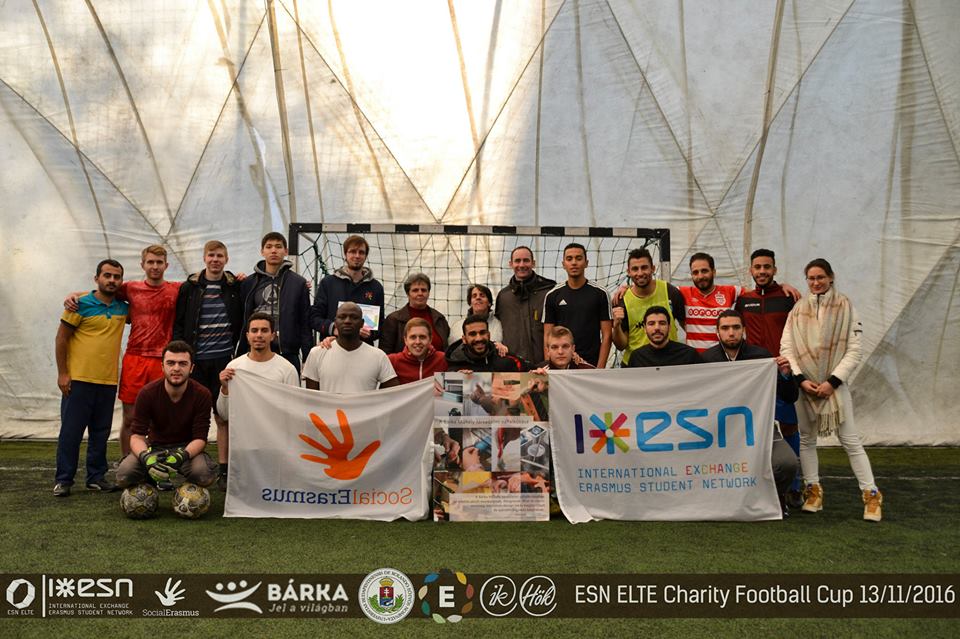
What is your aim to reach in this new academic year?
I would like us to be more sustainable, as there are more and more international students but every year fewer and fewer mentor candidates and even fewer who actively take part in our programs. The members of the board and the coordinators also come out from the mentor team. If there are no candidates, we might not have a president either in the future. We are constantly struggling against this situation and I can see some improvement. So our goal set to the end of this academic year is to enroll more mentors and get them engaged more, so they also are responsible for a bit more than mentoring.
It is never too early to join ESN ELTE and get involved.
